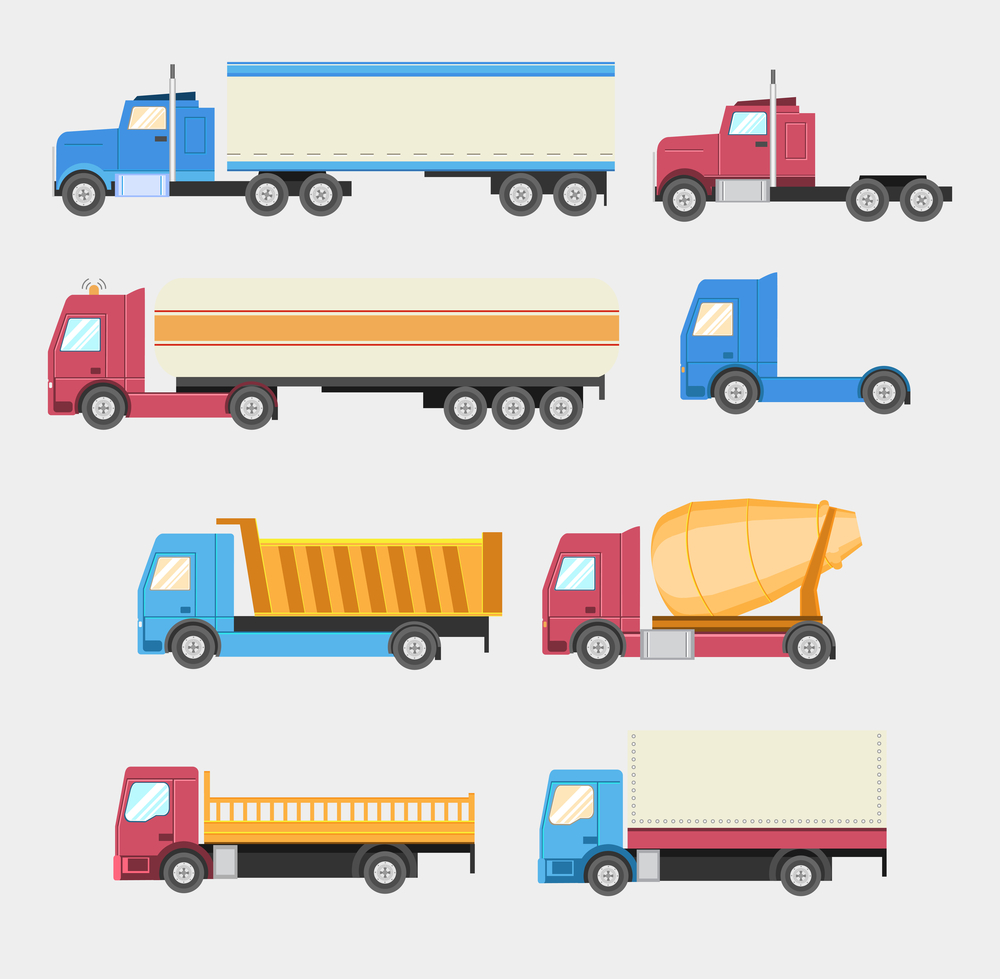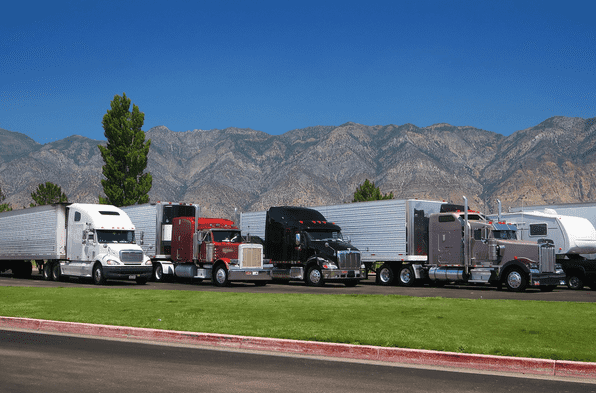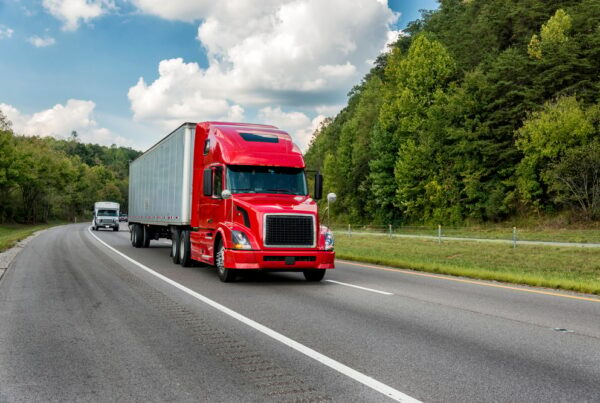Transportation in the logistics industry plays a key role in moving goods from their origin to their destination, making it an essential part of the overall supply chain system. Getting appropriate transport equipment, such as the type of trailer, can be important in securing the freight being towed, whether it be oversized machinery, temperature-sensitive items, or anything else unique. At ShipEX Logistics, we understand the need to choose the correct trailer types for what cargo. We specialize in offering a variety of custom transport solutions, and we’re ready to handle your freight with confidence and accuracy, no matter how tough the situation.
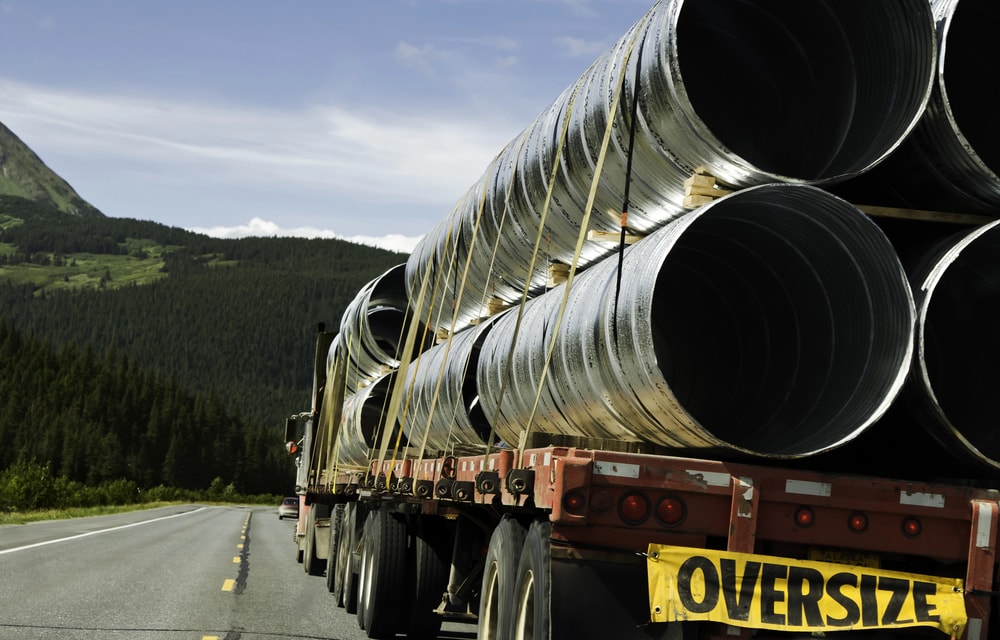
Specialized Freight Trucks and Trailers
Heavy Haul Trucking
Heavy haul trucking is a specialized segment within the logistics industry, dedicated to oversized, heavy equipment transportation beyond the capability of standard freight services. This particular type of trucking is very important, as it accommodates large and sometimes very complicated machinery, like construction equipment, industrial machinery, and farming tools. These consignments involve not only exceptional load capacity but also require very precise planning and coordination through regulatory requirements, road restrictions, and safety protocols. Heavy haul trucking ensures that construction materials, agricultural equipment, and other large loads are transported efficiently from one location to another, often over a long distance.
Specialized Trailers for Heavy Haul
Specialized trailers are designed for the unique demands of heavy haul trucking. Different trailer types, such as flatbed and enclosed trailers, are chosen based on load requirements. The trailer’s weight and type determine load capacity, ensuring the secure transport of heavy machinery or construction materials.
Removable Gooseneck Trailers (RGN) – RGNs are removable gooseneck trailers that detach to act like a ramp for the loading of oversized and overweight cargo, such as heavy machinery. Because of their design, RGN trailers work well with industries needing the ability to easily load and haul large-sized equipment.
Double Drop Trailers – A double drop trailer, otherwise referred to as a lowboy, is designed with two “drops” in the deck to allow for a lower center platform when hauling tall or heavy equipment. This low deck enables the oversized load to be moved while still staying within the height restrictions. Construction and agriculture are two of the main industries that use double drop trailers in order to move big machinery and other bulk cargo safely.
Lowboy Trailers – Lowboy trailers are designed to allow for low decks, accommodating taller cargo at low centers of gravity with substantial gross weight. These trailers are ideal for heavy equipment whose requirements are lower height clearance, like construction machinery or roadworks.
Step Deck Trailers – The step deck trailer, otherwise known as a drop deck trailer, comes with two deck levels built-in to be a little more flexible on those big equipment moves that a regular flatbed can’t handle. Due to their design, they can provide height-restricted moves and flexibility in heavy hauls.
Flatbed Trailers – Flatbed trailers are versatile and among the more common heavy haul trucking used to haul construction materials and large freight. Specialized versions include bed-extending or bed-reinforced platforms for handling some diverse heavy-duty applications.
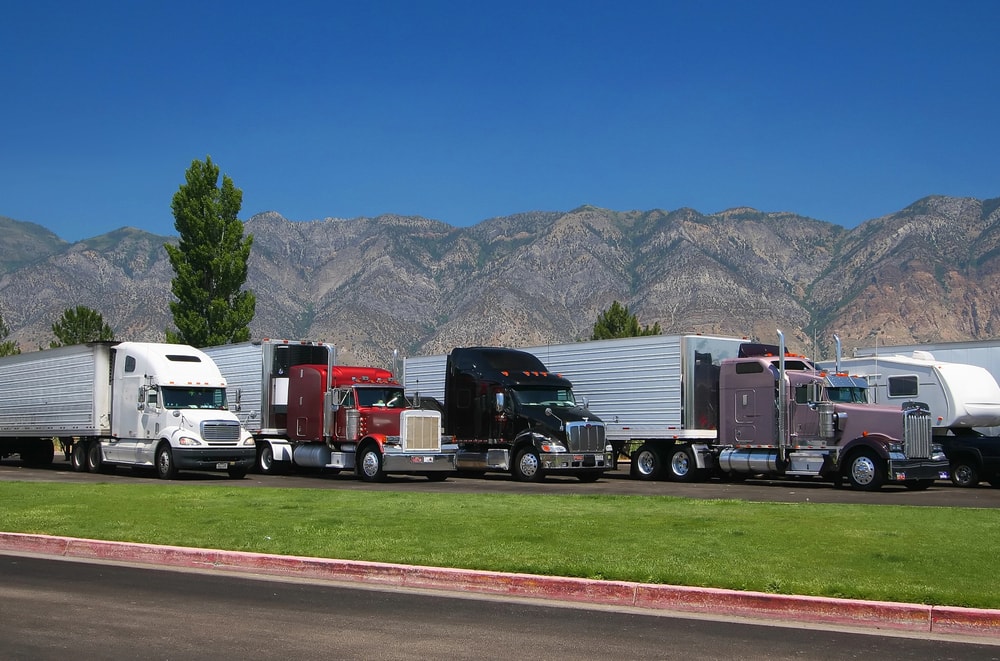
Enclosed Trailers and Temperature-Controlled Transportation
Enclosed trailers are helpful and assist in carrying sensitive cargo that requires protection from the elements. It has become a standard for over a decade for goods that require security during transit, offering protection more than any other type of trailer.
Dry Van Trailers
Dry van trailers are the most common enclosed trailers in the industry and are ideal for carrying general cargo that does not require temperature control but still needs shelter from weather and debris.
Refrigerated Trailers (Reefers)
Reefers are temperature-controlled trailers that play a very important role in cold-chain logistics, especially for perishables like food items and pharmaceuticals. These trailers ensure that cargo remains at a particular required temperature during its journey.
Conestoga Trailers
Conestoga trailers use a rolling tarp system, which enables the ease of open-air loading and unloading with all the protection of a fully enclosed trailer. Conestoga trailers can legally load weight and are one of the most sought-after models for oversized or irregularly shaped cargo.
Utility Trailers
Utility trailers are available in the open or enclosed type, both of which are convenient options for transporting different types of cargo. Moreover, they are designed to transport large items and are suitable for industries requiring flexibility and security.
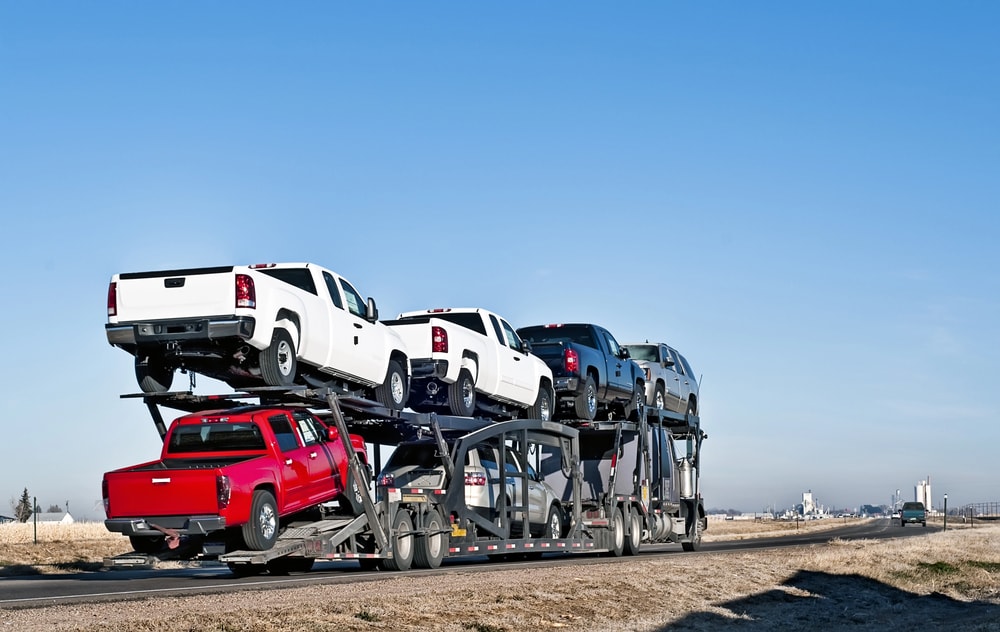
Trailers for Specialized Cargo and Unique Needs
When it comes to transporting specialized cargo and meeting unique needs, selecting the right trailer is essential for maximizing efficiency and safety.
Car Trailers
In the automotive industry, car trailers are specifically designed to handle vehicles of various sizes, ranging from compact cars to large SUVs or trucks. These trailers come equipped with specialized features such as adjustable ramps, tie-down points, and durable suspension systems to ensure safe and efficient transport. This attention to detail helps maintain the integrity of the vehicles and reduces the risk of accidents or delays during transport.
Dump Trailers
Dump trailers are commonly used in construction and landscaping, where their strong weight capacity and efficient loading mechanisms make them ideal for moving bulk materials like landscaping supplies, gravel, sand, soil, and building materials. Their hydraulic lift systems allow for easy unloading of materials, making them particularly useful for jobs that require frequent, fast transfers of loose goods.
Pintle Hitch Trailers
Pintle hitch trailers, known for their robust and secure hitch connections, are ideal for towing heavy equipment and machinery over rough or uneven terrain. Their design allows for greater articulation between the towing vehicle and the trailer, making them effective for off-road or industrial applications where stability and enhanced maneuverability are important. This makes pintle hitch trailers a preferred choice in industries like construction, agriculture, and military transport, where moving large loads is routine.
Gooseneck Trailers
Gooseneck trailers, known for their stability and balanced weight distribution, are favored for transporting large and heavy loads due to their unique design, which allows the hitch to connect over the rear axle of the truck, providing better control and maneuverability. Their ability to handle higher weight capacities makes them a top choice for challenging hauls, such as transporting construction equipment, machinery, and other oversized loads.
Flatbed Trailers
By far, flatbeds are incomparable in versatility and can carry a wide range of materials and equipment for many industries, such as construction, manufacturing, and farm produce. Their open design allows for the easy loading and unloading of oversized cargo or things that have irregular shapes; these might include machinery, building materials, and even vehicles. It is for that reason alone that they are ideal for hauling freight that won’t fit within the enclosure of enclosed trailers.

Choosing the Right Trailer for Your Hauling Needs
Choosing the right trailer for a particular hauling need is a decision that will affect the safety and overall success of your transport operation. In choosing a trailer, weight capacity, and legal weight limits are most important. These limits will not only dictate the size of the load that can be carried in your trailer but also influence compliance with transportation regulations. Another important factor is trailer dimensions, which is important when one plans the route to take for oversized loads. Knowing the actual dimensions of your cargo and how they match up with route restrictions makes all the difference between a hitch-free trip and a nightmare of delays and complications.
Common Scenarios and Matching Trailers
Identifying the correct trailer to haul your cargo is important. For example, dry vans offer protection from bad weather conditions for sensitive goods, and flatbeds are used to carry large machinery that cannot be enclosed. Each industry has its own needs when it comes to transportation. While flatbeds and lowboys are normally used in construction, hauling heavy equipment and materials, a trailer specialized to transport livestock or bulk goods would be required in agriculture. In contrast, an automotive company may move vehicles either by using a car hauler or an enclosed trailer. By considering each of these factors, along with matching up the appropriate trailer to your particular cargo, you’ll be able to smoothly move ahead with operations and make transportation easier.

The Role of Trailers in the Trucking Industry
There are different types of trailers designed for various purposes. Options in trailer choices go hand in hand with freight haul safety and efficiency. ShipEX Logistics focuses on matching the right trailer to your cargo while ensuring each load is handled reliably and according to that particular customer’s need.
Trailer Maintenance and Safety
Trailer maintenance is key for safe and reliable transport as well as the general longevity of the life of the trailer. Proper upkeep is vital in preventing accidents on the road. The most important safety features involve lights that work, secure coupling systems, and good brakes. In the case of specialized trailers, such as reefers, the key to maintaining temperature control units is equally critical. Our care for the trailer fleet at ShipEX Logistics lets us move freight with confidence.
Future Trends in Trailer Technology
The trucking industry is experiencing significant advancements in trailer technology, thanks to the integration of innovative designs and advanced materials. Introducing more lightweight yet strong materials into the manufacturing process could achieve even higher fuel efficiency, while smart technologies that come with the trailers will monitor real-time conditions. These are the things to come in the trucking industry, offering scope to improve safety, reduce operational costs, and increase efficiency.
Conclusion
Selecting the right trailer is important to the success of any hauling operation. It directly impacts safety and efficiency. From heavy machinery to sensitive goods, the type of cargo requires a particular match of a trailer for the job in hand. At ShipEX Logistics, we understand the complexities of trailer selection and maintenance, ensuring that every haul is managed with precision and care. Our knowledge extends to customized transportation solutions to help shippers and manufacturers select the most appropriate equipment for the particular job, leading to smooth and reliable transportation in any condition.

